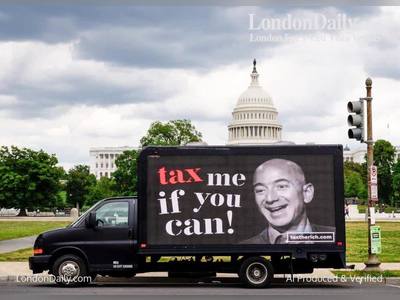Watchdog Recommends Expanding Acceptable ID for Voting
The UK Electoral Commission recommends expanding acceptable IDs for voting, following a study that found up to 750,000 people might not have voted in the 2024 general election due to lack of proper ID. The Commission suggested including IDs like the Oyster photocard for students, and enabling someone without ID to be vouched for. The Ministry of Housing, Communities and Local Government will review these recommendations.
The Electoral Commission has advised that the UK government should allow a broader range of IDs to be used for voting.
A study conducted by the Commission revealed that approximately 750,000 people might not have voted in the 2024 general election due to a lack of proper identification.
The voter ID laws introduced by the Conservatives in 2022 led to 16,000 voters being turned away at polling stations in the 2024 election.
The research found that 4% of those who did not attempt to vote cited lack of ID as the reason, potentially impacting 750,000 voters based on a 60% turnout among 47 million registered voters.
The study noted that this issue predominantly affected people from deprived social backgrounds and, to some extent, disabled and unemployed individuals.
The Electoral Commission suggested that ID options like the Oyster photocard for students in London, the Jobcentre Plus Travel Discount card, and the Veterans card should be included.
The report also recommended allowing a voter without ID to cast their ballot if vouched for by someone with valid ID.
Despite a free voter authority certificate being available, only 26,000 of the 210,000 issued were used during the election.
Vijay Rangarajan, chief executive of the Electoral Commission, emphasized the need for improvements to ensure no voter is discouraged.
The Ministry of Housing, Communities and Local Government will review these recommendations as part of their evaluation of the voter ID rules.
A study conducted by the Commission revealed that approximately 750,000 people might not have voted in the 2024 general election due to a lack of proper identification.
The voter ID laws introduced by the Conservatives in 2022 led to 16,000 voters being turned away at polling stations in the 2024 election.
The research found that 4% of those who did not attempt to vote cited lack of ID as the reason, potentially impacting 750,000 voters based on a 60% turnout among 47 million registered voters.
The study noted that this issue predominantly affected people from deprived social backgrounds and, to some extent, disabled and unemployed individuals.
The Electoral Commission suggested that ID options like the Oyster photocard for students in London, the Jobcentre Plus Travel Discount card, and the Veterans card should be included.
The report also recommended allowing a voter without ID to cast their ballot if vouched for by someone with valid ID.
Despite a free voter authority certificate being available, only 26,000 of the 210,000 issued were used during the election.
Vijay Rangarajan, chief executive of the Electoral Commission, emphasized the need for improvements to ensure no voter is discouraged.
The Ministry of Housing, Communities and Local Government will review these recommendations as part of their evaluation of the voter ID rules.










